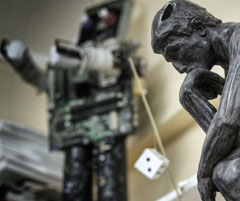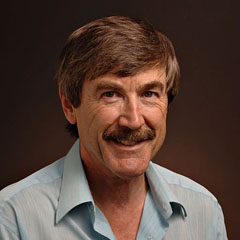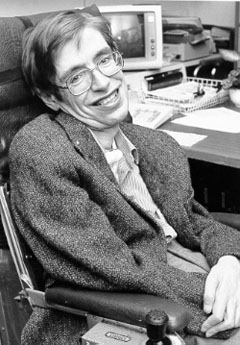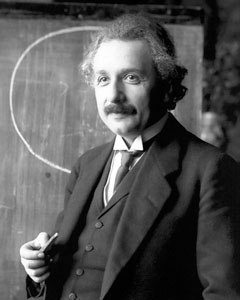

| Archive Blog Cast Forum RSS Books! Poll Results About Search Fan Art Podcast More Stuff Random |
|
Classic comic reruns every day
|
1 {photo of galaxies in the Hubble Ultra-Deep Field}
1 Caption: Cosmology and Theism
|
First (1) | Previous (3250) | Next (3252) || Latest Rerun (2889) |
Latest New (5380) First 5 | Previous 5 | Next 5 | Latest 5 Annotations theme: First | Previous | Next | Latest || First 5 | Previous 5 | Next 5 | Latest 5 This strip's permanent URL: http://www.irregularwebcomic.net/3251.html
Annotations off: turn on
Annotations on: turn off
|
Introduction: Today is the first in what I hope will be a series of guest annotations by the friends of mine who, together with me, form the Comic Irregulars. As a group, we do a lot of different stuff, including writing Darths & Droids, coming up with ideas for mezzacotta, running the CiSRA Puzzle Competition, playing games, creating and playtesting games, and a bunch of other things. I've been pestering the guys on and off to write up something that interests them, since their interests, although overlapping with mine, draw in an even wider range of subjects than I am likely to cover on my own. David Karlov is the first to take up the challenge, and today presents a look at the philosophies of theism and atheism. DK approaches this from a different perspective than I would, since he is a theist, whereas I'm an atheist.
DK frequently beats me at Words With Friends, but we're on a more even footing with Magic: The Gathering. He's a prolific puzzle creator, and a reference point for computer gaming during Darths writing sessions, as well as frequently providing alternate wordings for lines of dialogue. He plays bass guitar in our band - or at least he will as soon as we schedule a second practice session, this time on a date that he is available.
So, without further ado:
 Creative Commons Attribution image by Suus Wansink. |
It can be easy to dismiss such beliefs as superstitious nonsense without a second thought, especially when the belief is accompanied by an actively anti-scientific viewpoint, as it too often is.
But what if rational, scientific folk are some of the people who hold such beliefs? Is this notion a contradiction in terms? Apparently not - some critical thinkers, mathematicians, and scientists, even Nobel prize winners, profess to hold such beliefs. Why? This is not only an enormous question to answer, but it's a question whose answer varies from individual to individual.
Rather than jump headlong into an impossible question, I will consider a rather more specific subset. Firstly, I want to dive beneath the multi-faceted and conflicted edifice of religion, and discuss the question at the level of philosophy. Secondly, I want to focus on reasons stemming from generally observable evidence from existence, and from the universe as a whole, rather than from any individual's specific experiences.
Before we get to that more narrow question, I need to explain a few terms.
Theism in its broadest sense is a belief in the existence of one or more deities, or Gods. It's a belief in an intelligent supernatural power, often one presumed to exist outside the observable universe. Theism is a necessary part of most religions, but does not imply an entire system of beliefs and practices as religion generally does.
 Creative Commons Attribution-Non Commercial-Share Alike image by Brian Smith. |
Ontological naturalism is the belief that all causes are empirical and naturalistic. That is, not only are untestable or "supernatural" causes outside the bounds of science, they are outside the bounds of possibility; such causes do not, and cannot exist.
From these definitions, it follows that all scientists are methodological naturalists, whether theistic or not. It also doesn't make sense to be both a theistic scientist and an ontological naturalist; by definition, the two viewpoints are contradictory.
We're now in a position to refine our question. Here it is:
| Do theistic scientists have any observational basis for disagreeing with ontological naturalism? |
It's a mouthful, but if you've followed the definitions above, the question should be making sense (I hope)! Here's one more definition:
Metaphysical cosmology is the branch of metaphysics which attempts to explain the fundamental existence of the universe in its totality. Metaphysics is categorised as a philosophy rather than a science (because opportunities to experiment on universes in their totality are limited!)
I'll answer the question above by looking at three areas of metaphysical cosmology which theists often cite as evidence for their beliefs. Pretty much everything I will be covering has known criticisms, some of which I will discuss. These criticisms, too, generally have arguments against, as do those arguments, and so on. So my aim is clearly not to be exhaustive, or even to suggest which views hold more weight. Although my discussion of each point will necessarily be brief, I'll include plenty of links to Wikipedia - a good starting point for learning more on a wide range of topics.
 "The impression of design is overwhelming." - Paul Davies |
The universe is suitable for intelligent life. To many, this is a tautology - if a universe was not suitable for observers, the universe would remain unobserved. This consideration is called the anthropic principle.
More specifically, the fundamental physical constants of the universe give the impression of being fine-tuned for life, to a startling degree. For example, life as we know it depends on the existence of both large stars (which generate heavy elements) and small stars (which burn for long enough to sustain a planet with life). If the ratio of the electromagnetic force constant to the gravitational force constant were increased by 1 part in 1040, only small stars could exist. If decreased by the same amount, only large stars could exist. Dozens of other examples have been proposed, in some cases with even longer odds.
The issue of exactly how fine-tuned the universe really is is disputed amongst scientists. Criticism includes theories involving an incredibly large or infinite number of universes (a multiverse), or that the universe oscillates with random parameters in each oscillation, and so the fact that we observe a suitable universe is a given. Counter-criticism of multiverse theories suggest they are untestable (and therefore unscientific), they violate Occam's Razor, and they still don't explain why any particular combination of values of fundamental physical constants should exist at all which allow for any kind of life - let alone the mind-boggling complexity of the mechanisms of life as we know it.
 "Why does the universe go to all the bother of existing?" - Stephen Hawking |
The existence of the universe is one of the most self-evident things you can imagine, and therefore one of the easiest to take for granted. The absence of evidence suggesting that there had to be a universe in the first place leads one to wonder: Well, why does it exist? A theistic line of reasoning called the cosmological argument argues that the universe exists because of an act of creation on the part of a creator. Be careful applying baggage-laden terms such as creationism to this very basic concept - the concept does not necessarily imply anti-evolutionism or young earth creationism.
A common criticism of the cosmological argument invokes Occam's Razor. Despite the apparent paradox of a universe which has either always existed, or which created itself, it is one step simpler than a universe which was created by a being who has either always existed, or who created itself. Postulating a creator shifts the problem to the next layer - if the existence of God explains the universe, then what explains the existence of God? The notion of "shifting the problem to the next layer" is colourfully known as turtles all the way down.
Deeper alternatives to the cosmological argument involve theoretical models of how the laws of physics make a universe inevitable (or at least possible), or that the universe is self-creating. For example, (simplistically), the universe may have spontaneously formed out of a vacuum of quantum fluctuations. Theistic responses to "cosmic bootstrap" theories submit that laws are descriptions of how things or forces act; without the thing or the force, a law does nothing; laws alone cannot bring anything into existence. Further, new discoveries or theories about physical processes at the beginning of the universe can't address the fundamental question of a first cause - if the vacuum of quantum fluctuations explain the existence of the universe, then what explains the vacuum of quantum fluctuations? If laws of physics explain the quantum fluctuations, what explains the existence of the laws? It's "turtles all the way down" all over again.
Some critics of the cosmological argument maintain that there is no point in even thinking about a first cause: the universe doesn't need a reason to exist; it just is. But this lack of curiosity about this mystery of universal proportions fails to satisfy many scientists and theists alike.
Counter-arguments to a self-creating universe sometimes invoke the Big Bang and the second law of thermodynamics as evidence that the universe could not have always existed. The second law of thermodynamics states that the entropy (chaos) of any isolated system (such as the universe) always increases; simplistically, its order always decreases. An extension of the theory is the Heat death of the universe, in which the thermodynamic energy of the universe will eventually diminish to a point where no process that consumes energy can occur. An arrow of time is implied. The question is asked, if the universe (or multiverse) had a beginning, where did its starting "negative entropy" come from?[1]
 "The most incomprehensible thing about the universe is that it is comprehensible." - Albert Einstein |
Both laws of physics as stated by scientists, and the symmetries discovered by mathematicians contain a high degree of order, elegance, even beauty. This, along with the sometimes unexpected interconnectedness between purely theoretical mathematics and purely physical observations, can (and should!) give rise to a sense of wonder.
A related question asks why the laws of nature are stable and universal, as opposed to chaotic or local. Science depends on the premise that an experiment today under a given set of conditions will be repeatable tomorrow under the same set of conditions, yet there is no a priori reason why a universe should be so well behaved.
Theists argue that order, elegance, beauty, and intelligibility are hallmarks of design: the reason that scientific and mathematical theories are lavished with an abundance of such properties is because these theories describe, and emerge from, a physical universe which has been designed.
A basic criticism of theoretical elegance as evidence for a designed universe points out that it's the job of mathematicians and scientists to find order, elegance, and beauty in their respective fields: a result that is chaotic or disjointed is less useful than a more elegant one; so it's no wonder that the most elegant theories are the ones which emerge most strikingly. A counterargument is that mathematicians and scientists can find order, elegance, and beauty only because these attributes exist in the universe - the success of ordered theories depends on the existence of order in the objective world.
The dependable and ordered nature of the universe is sometimes criticised as inevitable - if the universe were completely chaotic in nature, it wouldn't be a universe in which observers (us) could exist to make observations about. To this the question can be asked, why should any given universe be able to manifest the order expressed in the laws of physics anyway - why is a non-chaotic universe even possible?
Common ground?
Although philosophical theism and ontological naturalism are mutually exclusive worldviews, the philosophical pursuit of each shares some of the same goals. Namely, to reason about how questions of existence, which go beyond the realms of science, might be answered. With apologies to Arthur C. Clarke[2], two possibilities exist: either we are in a universe which was created, or one which was not. Both are equally terrifying. But both possibilities are also solid grounds for wonder. So next time you have a free moment, why not spend a few moments considering the amazing universe we find ourselves in - one way or another?
[2] Arthur C. Clarke famously made a similar observation about the possibility of extra-terrestrials.
|
LEGO® is a registered trademark of the LEGO Group of companies,
which does not sponsor, authorise, or endorse this site. This material is presented in accordance with the LEGO® Fair Play Guidelines. |